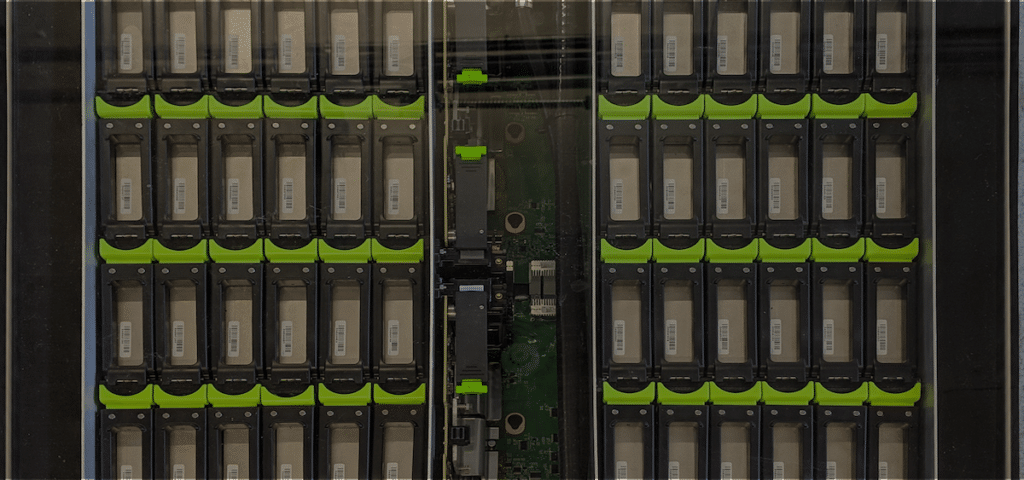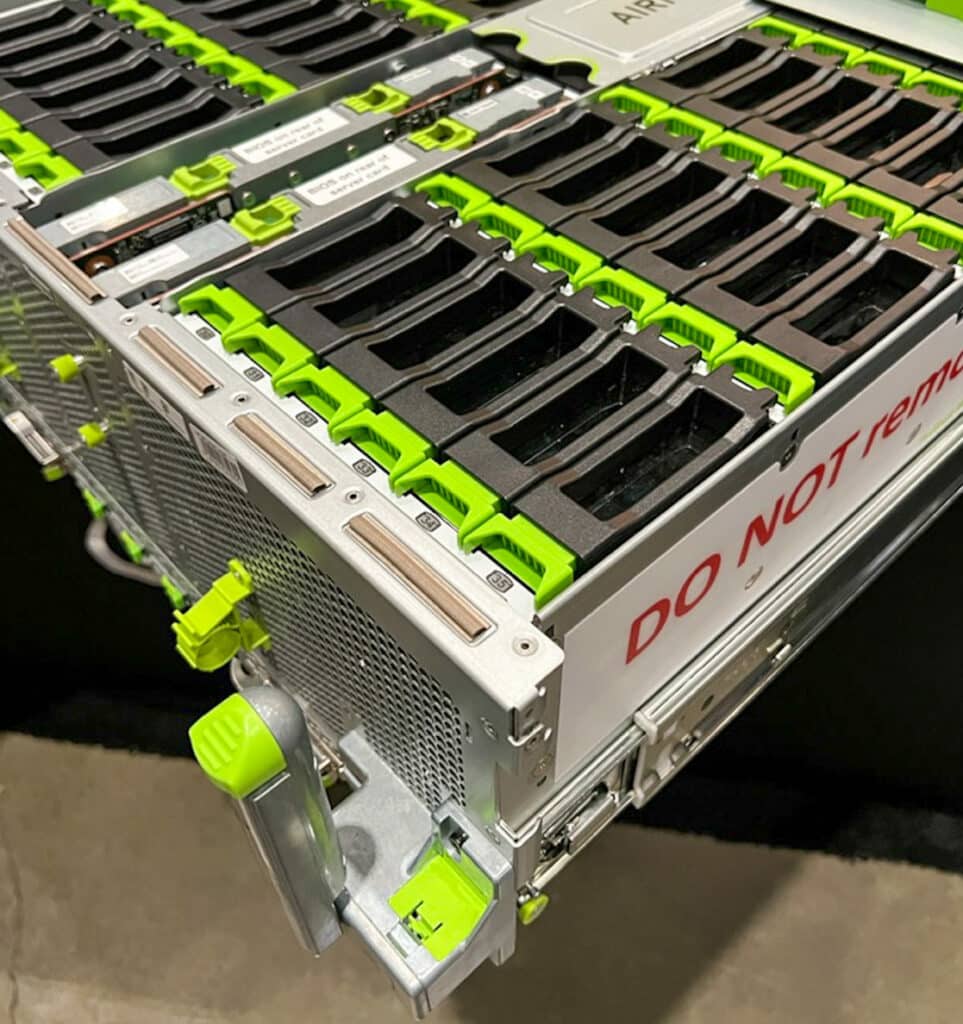Iceotope has published a study with Meta confirming the efficiency and effectiveness of chassis-level liquid cooling technology to meet the cooling requirements of high-density hard drives. The study shows that liquid cooling successfully cools the drives at a lower, more consistent temperature for fewer drive failures. It also offers a lower total cost of ownership, with improved environmental, social, and governance compliance.
With up to 463 exabytes of data expected to be generated by each person each day by 2025, and global data storage predicted to exceed 200 zettabytes, the study suggests that liquid cooling technology could be a valuable tool for organizations looking to efficiently cool their data storage equipment.

Liquid Cooling HDDs – Seriously?
The study showcases an air-cooled, high-density storage system that was re-engineered to use single-phase immersion cooling. The standard commercial storage system consisted of 72 hard drives, two single socket nodes, two SAS expander cards, NIC, and a power distribution board in a 4U form factor. The hard drives were hermetically sealed helium drives.

Grand Canyon – Meta’s Current 72 HDD Storage Array
The system tested was an Iceotope precision immersion liquid cooling system. The air-cooled version of the HDD array was modified with the addition of a dedicated dielectric loop connected to a liquid-to-liquid heat exchanger and pump. Meta measured temperature variation across the hard drives and cooling pump power in both the air-cooled and liquid-cooled systems.
The results of the study showed that precision immersion liquid cooling was a more efficient means of cooling the HDD racks. The liquid-cooled system achieved a maximum temperature of 30.5°C, compared to a maximum temperature of 48.5°C in the air-cooled system. The liquid-cooled system also used less power, with a maximum cooling pump power of just 49W, compared to a maximum cooling pump power of 140W in the air-cooled system.
In addition to improved cooling efficiency, the study also showed that liquid cooling technology offers other benefits. The virtually silent operation of the liquid-cooled system helps to mitigate acoustic vibrational issues associated with air-cooled solutions.
Overall, the study provides strong evidence that liquid cooling technology can be an effective and efficient means of cooling high-density storage systems. As the demand for data storage continues to increase, organizations may want to consider incorporating liquid cooling technology into their data center infrastructure to help improve thermal management and reduce the risk of equipment failure. That said, liquid does have challenges, like new models of servicing equipment, but the benefits should at least be considered by forward-thinking CIOs.
The full study can be requested from Iceotope here.




 Amazon
Amazon